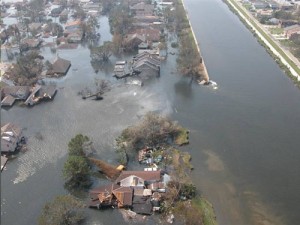One of my favorite quotes about preparedness is that good preparations help us whether bad things happen or not. I’ve been thinking about that a lot lately because of the volcanic eruptions in Iceland and the devastating effect they are having on millions of people.
For example, we’ve all read how airlines have been affected by the no-fly rules, and it’s easy from there to understand that the airlines are losing money. But consider the millions of passengers who would have flown home or to business destinations who have not been able to complete their journeys. Reports of passengers who have been stranded and are completely broke are growing, and it’s painful to contemplate how desperate they must be, stuck in an airport in a foreign country with no money and no way to get home to family and work.
I’m sure there are also many more stories of regular delivery of medication and other important supplies that are often transported by air that have been affected. If the eruption was much worse, I’ve been told it would begin to affect technology far beyond commercial airline flights.
And let’s not forget that volcanic eruptions can bring about substantial climate change-the authentic kind, mind you-and that climate change can lead to societal unrest, like the French Revolution, which historians now believe was in part the result of a famine which was brought about by volcanic eruptions in Iceland.

Hurricane Katrina Aftermath
In just a few short years we’ve seen natural disasters altering the lives of individuals, communities and now entire continents. There was Katrina, then the Indian Ocean tsunami, the earthquakes in Chile, Haiti and China, and most recently the volcanic eruptions disrupting travel and commerce in Europe.
Few places in the world are safe from any kind of natural disaster, so use each of these events as a reminder to evaluate your own personal plans and the natural disasters that may pose a risk to you and your loved ones. Consider how you might be affected, and what your plans should be, to deal with catastrophic natural disasters in your community.
Questions to ask yourself:
What if the power is out?
What if the banking system isn’t working?
What if the roads are closed?
What if the grocery stores have no food?
What if communications are disrupted?
What if there is a deadly, contagious disease spreading?
What if there are no emergency services (fire, ambulance, police) functioning?
What if there are gangs roaming the community?
What if any of the above persists for more than a few hours or days?
 Off The Grid News Better Ideas For Off The Grid Living
Off The Grid News Better Ideas For Off The Grid Living
